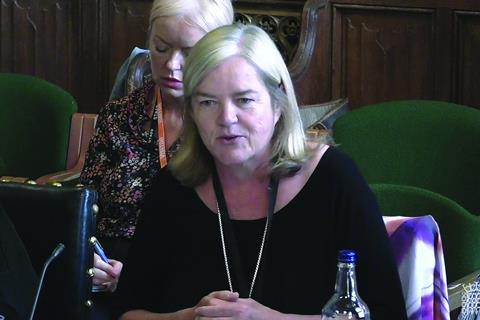Baroness Casey’s review of so-called grooming gangs highlighted the ‘sex offenders go-to defence’, allowing them to escape a proportionate sentence. And ‘victim-blaming misogyny’ means cases go uninvestigated
Consent is one of the most complex and controversial concepts within the law of sexual offences: what vitiates consent and what can reasonably be taken to signal consent are questions which continue to provoke debate.
But, given the age of consent is 16 in England and Wales, one question about which a lay person might assume there is no room for debate is whether a child consented to sex. It would surprise and perhaps appal those people to learn courts routinely hear arguments on exactly this point.
This is because if the evidence suggests a child aged 13-16 consented – in fact though not in law – to sex, even with a much older person, the offender may be charged with ‘sexual activity with a child’ (which carries a prison term of up to 14 years), rather than ‘rape’ (which can mean life imprisonment).
The purpose of this distinction is well-intentioned: to avoid criminalising relationships between teenagers or someone who reasonably believed a child was over 16. But Baroness Casey (former victims’ commissioner Louise Casey, pictured), in her audit of so-called grooming gangs, warns this ‘nuance in law’ is being used ‘to the benefit of much older men who had groomed vulnerable children for sex’.

Rachel Horman-Brown KC, a director at Watson Ramsbottom Solicitors, told the Gazette this was ‘the sex offenders go-to defence’ and was ‘allowing them to escape the sentences they deserve’.
The availability of a consent ‘defence’ for adults who have sex with children has led to ‘perverse outcomes’, Casey’s review found. It described one case where a 15-year-old vulnerable child was having a sexual relationship with an older man, something ‘well known’ to local services and the police. Despite substantial evidence – including images on both of their phones and hotel room bookings – the case did not make it to court because the victim said she was ‘in love’ with the abuser and would not support a prosecution.
‘This needs to be seen as what it is – rape’, Horman-Brown said. ‘When we look at what grooming is, to me it is directly comparable to coercive control. It is about gaslighting, love bombing, terrorising and humiliating victims – in these cases children – and often very vulnerable children at that who are far less equipped to deal with this sort of emotional terrorism.’
'This nuance in law is being used to the benefit of much older men who had groomed vulnerable children for sex'
Baroness Casey
In her review, Casey pointed to a famous piece of case law – R v Sean Robinson [2011] – which established that not all grooming vitiates consent. Casey said the case provides a ‘shocking’ window into the types of daily discussions barristers, judges and juries are having about children under the age of consent having sex with adults. Robinson argued the rape charge against him should have been dismissed, arguing the 12 to 13-year-old victim was ‘infatuated’ with him. The trial judge, in considering this, observed the victim was ‘comparatively sexually mature for her age’, as she had started her periods at the age of 11 and ‘grown breasts’. The judge noted she was described as ‘attractive’.
Cases such as Robinson make England and Wales something of an outlier compared with other European jurisdictions, Casey argued. Although our age of consent is higher than in France (15) and Germany (14), other nations treat theirs as a true red line. In 2021, France adopted legislation which characterised all sex with a child under the age of consent as rape. In Sweden, if a person has sex with someone under 15, it is legally defined as ‘rape against a child’ even if the child agreed at the time. Casey observed we are left with ‘a contradictory situation where our age of consent is 16 but legal professionals are left debating whether a 13–15-year-old consented to sex’.
Casey recommended changing the law so adults who intentionally penetrate the vagina, anus or mouth of a child under 16 receive mandatory charges of rape. In the Commons on Monday, home secretary Yvette Cooper said the government will introduce this change, while working with the CPS and the police to ensure safeguards for consensual teenage relationships.
Horman-Brown welcomed the change but warned it was ‘only the tip of the iceberg’ and that ‘victim-blaming misogyny’ meant the cases highlighted in Casey’s review were often not even investigated, let alone charged correctly. She added: ‘The fact that many girls – children – were criminalised for “child prostitution” is shameful. How anyone could utter that phrase and not see that it was a contradiction in terms is incredible.’
This article is now closed for comment.































9 Readers' comments